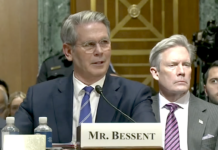
The Georgia Department of Human Services and Department of Community Health are asking low-income families currently enrolled in Medicaid and PeachCare for Kids to update their contact information in the state’s public health insurance portal, Georgia GateWay. If they don’t, they could lose coverage in 2023.
For just over two years, enrollees in Medicaid and PeachCare for Kids have had continuous coverage, meaning access to affordable health care without interruptions, regardless of changes in eligibility.
That’s because the ongoing federal COVID-19 Public Health Emergency, set in March 2020, increased federal funding for Medicaid subject to states’ implementation of continuous enrollment. Typically, states re-evaluate the eligibility of Medicaid recipients annually.
Medicaid makes health care affordable for low-income families. Since February 2020, enrollment in Medicaid and the Children’s Health Insurance Program has gone up almost 30% nationally.
Meanwhile, the number of uninsured kids in Georgia has gone down significantly since the pandemic, largely due to continuous coverage under PeachCare for Kids, Georgia’s state CHIP program.
But public health agencies are expecting an end to the emergency designation in 2023, likely in the spring, and 2.6 million adults and children in Georgia will have their eligibility re-evaluated for the first time since the pandemic. States will have up to one year for redeterminations.
RELATED Georgia has one of the highest rates of uninsured children. It’s about to get worse, study says
Even people who maintain eligibility next year could temporarily lose coverage during redeterminations, said Laura Colbert, director of Georgians for a Healthy Future.
Colbert says low-income adults will likely see the largest coverage losses because they don’t often qualify for Medicaid unless they are pregnant, disabled, or have certain cancers.
“Unless our state leaders choose to expand Medicaid,” Colbert said.
Under full Medicaid expansion, adults with incomes up to 138% of the federal poverty level — about $18,700 a year for a single-person household — would be eligible for coverage.
Instead, Georgia’s Medicaid waiver, Georgia Pathways, will cover people up to 100% of the FPL with work requirements. That plan is scheduled to be implemented July 2023, according to Fiona Roberts, spokesperson for the Georgia Department of Community Health.
RELATED Path cleared for Georgia to launch work requirements for Medicaid
States will receive a 60-day notice from the federal government before the end of the PHE. Georgia released its unwinding plan in October, emphasizing the need for more staff and improved communications.
States are required to develop unwinding plans that lay out how public health entities will conduct Medicaid redeterminations “to prevent improper terminations, mitigate churn, and provide smooth transitions.”
To help fulfill those goals, Georgia will implement seven strategies under authoritative power from the Centers for Medicare and Medicaid Services that allow the state to: renew Medicaid for SNAP recipients, partner with the postal service to update contact information, and automatically re-enroll recipients that don’t have changes in eligibility, among others.
Georgians can find more information on redeterminations at staycovered.ga.gov.
______________
This article appears on Now Habersham through a news partnership with GPB News







